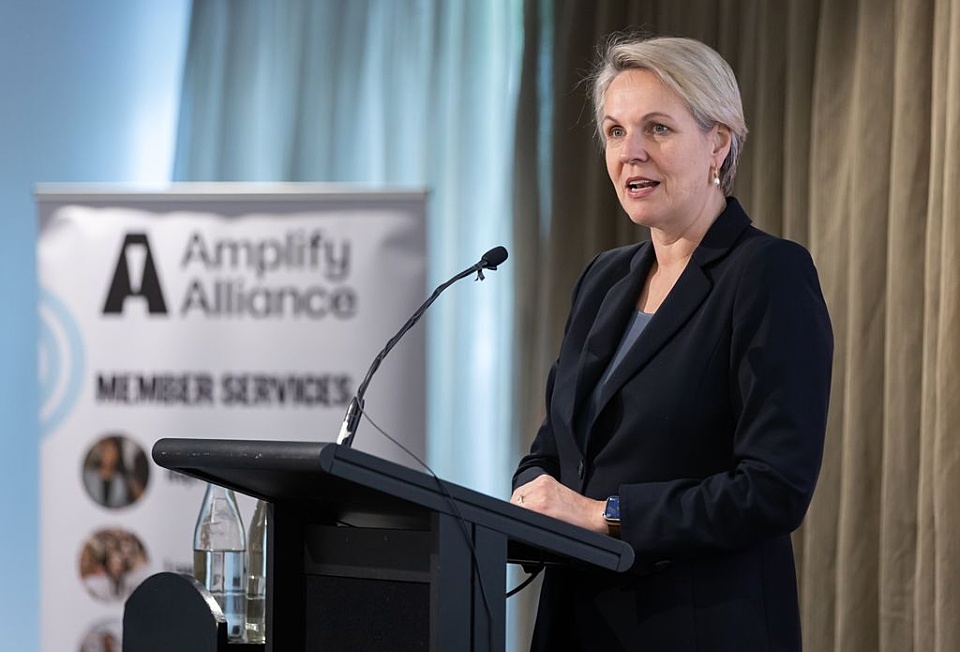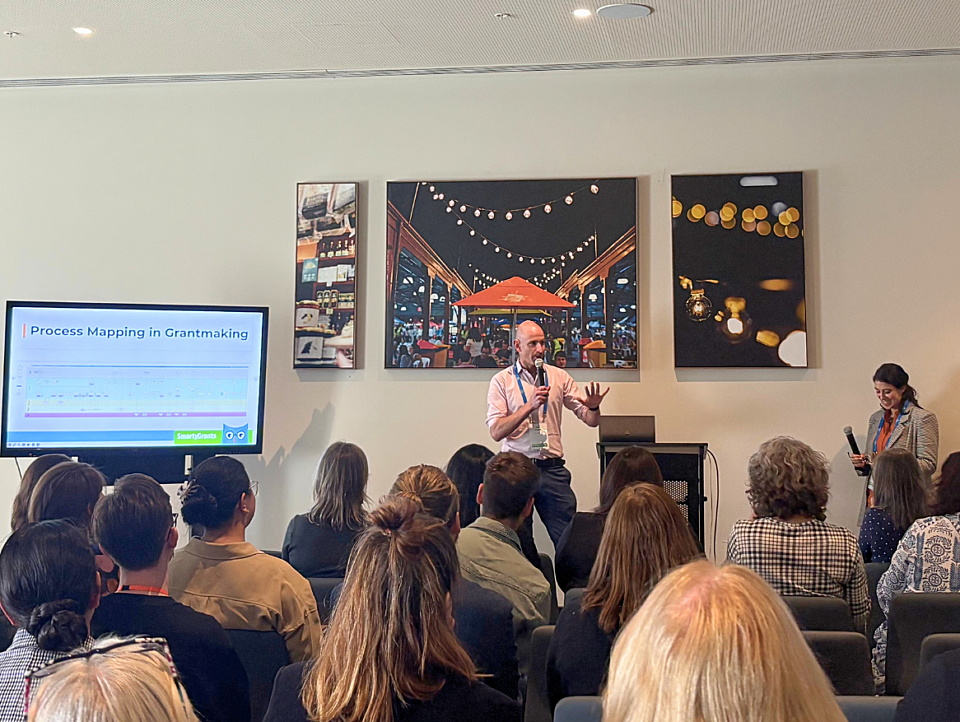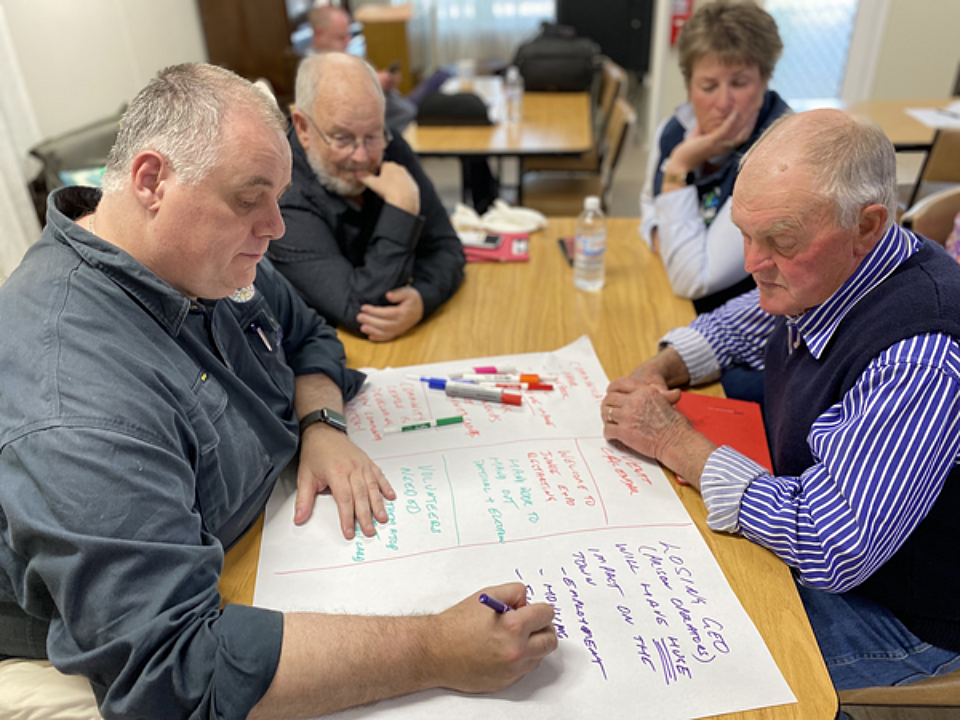
Feds flag human services grants shakeup
Posted on 15 Dec 2025
The federal government is trialling longer-term contracts for not-for-profits that deliver…
Posted on 01 May 2025
By Jen Riley, chief impact officer, SmartyGrants

With the sector juggling restricted grants, tight timelines, high-stakes acquittals, and a must-succeed narrative, it’s no wonder many organisations default to “polished” reporting.
It’s not about misleading – it’s about survival. It’s about trying to be seen as worthy of support in a system that often equates complexity with risk, a system that makes it genuinely hard to communicate impact with honesty, clarity, and confidence.
So we report what’s safe. We soften what’s tricky. And we miss out on the real gold: the insights that would help us do better.

At a recent Queensland Council of Social Service (QCOSS) gathering, I shared this message with grantmakers and changemakers: we don’t need more data – —we need a better relationship with the data we already have.
If we want to shift the culture, we need to shift the conversation. That starts with reframing the way we talk about data.
Instead of “Subjective participant experience relating to interpersonal safety and dignity,” how about: “Did participants feel safe and respected?”
Instead of “Participant likelihood to recommend program to others,” try: “Would they tell a friend to come along?”
Plain language is not a downgrade. It’s an invitation – for your board, your team, your funders – to lean in and actually engage.
And when you combine the resulting data with context and a participant voice? That’s where real meaning lives.
“I walked in expecting to feel awkward and leave early. But I stayed the whole session. People asked my pronouns, used them, and actually listened. I didn’t know how much I needed that until it happened.” – Alex, 19
No bar chart can carry the kind of impact that Alex’s personal account does. Pair it with data, and it becomes a powerful insight, not just a number.
To the funders reading this: ask good questions. Make room for grey areas. Reward curiosity."

We often treat impact reporting like a finish line. But what if it were more like a feedback loop?
The organisations I see reporting their impact well are creating space for reflection. They’re experimenting with dashboards, yarning circles, even art. They’re designing reports for different audiences and using the 1-3-25 model to give everyone something they can actually use (one page of main messages, a three-page executive summary, and no more than 25 pages of findings).
They’re designing reports for different audiences, and using the 1-3-25 model to give everyone something they can actually use (one page of main messages, a three-page executive summary, and no more than 25 pages of findings).
Crucially, they’re transparent about their achievements and findings.
This isn’t a call-out. It’s a call-in.
To the funders reading this: ask good questions. Make room for grey areas. Reward curiosity.
To the not-for-profits: you’re doing hard work under complex conditions. Don’t be afraid to show what you’ve learned as well as what you’re achieved.
To all of us: let’s stop seeing data as a performance, and start using it as a tool for collective growth.
Because when we shift the culture of data – from fear to reflection, from proof to learning – we make it easier for everyone in the system to do better work.
For grantmakers who want more on impact without performance pressure, I recommend visiting simna.com.au and exploring how SmartyGrants is helping grantmakers to have braver conversations about data over through its new analytics tools.

Posted on 15 Dec 2025
The federal government is trialling longer-term contracts for not-for-profits that deliver…

Posted on 15 Dec 2025
A Queensland audit has made a string of critical findings about the handling of grants in a $330…

Posted on 15 Dec 2025
The federal government’s recent reforms to the Commonwealth procurement rules (CPRs) mark a pivotal…

Posted on 15 Dec 2025
With billions of dollars at stake – including vast sums being allocated by governments –grantmakers…

Posted on 15 Dec 2025
Nearly 100 grantmakers converged on Melbourne recently to address the big issues facing the…

Posted on 10 Dec 2025
Just one-in-four not-for-profits feels financially sustainable, according to a new survey by the…

Posted on 10 Dec 2025
The Foundation for Rural & Regional Renewal (FRRR) has released a new free data tool to offer…

Posted on 10 Dec 2025
A major new report says a cohesive, national, all-governments strategy is required to ensure better…

Posted on 08 Dec 2025
A pioneering welfare effort that helps solo mums into self-employment, a First Nations-led impact…

Posted on 24 Nov 2025
The deployment of third-party grant assessors can reduce the risks to funders of corruption,…

Posted on 21 Oct 2025
An artificial intelligence tool to help not-for-profits and charities craft stronger grant…

Posted on 21 Oct 2025
Artificial intelligence (AI) is becoming an essential tool for not-for-profits seeking to win…